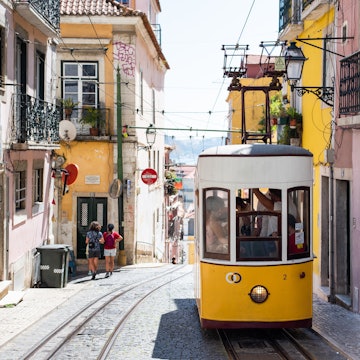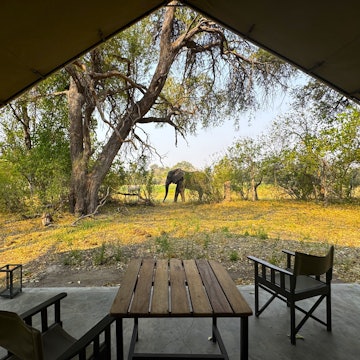

We've got lots of tips on how to stretch your budget in Cape Town © Hello World / Getty Images
One of Cape Town’s greatest strengths is its diversity. It runs through the city’s landscape, its cultures, the people, the food – and the range of budgets catered for. The rand is generally fairly weak compared to many currencies, so South Africa is quite an affordable destination if you’re coming from Europe, Oceania or North America. And while Cape Town tends to be a bit pricier than other parts of the country, it still offers great value.
You'll really see how far your money can go when eating out. If you were ever going to splurge on a multi-course fine-dining banquet, then Cape Town would be the place (you’ll get a six-course tasting menu for around US$100 in the city’s top restaurants). But of course, there are plenty of budget-friendly options to choose from too. Here's how to make your money go further on a trip to Cape Town.
1. Make a stopover in Addis Ababa
One of the cheapest ways to fly to Cape Town is with Ethiopian Airlines. Flight service is excellent and the fares are great, but the route adds extra hours onto the journey. Most flights involve an overnight stay in Addis Ababa but think of it as an opportunity rather than a burden. Airline staff greet you at the airport and usher you onto buses to your free hotel, where Ethiopian food awaits before bed. You’re ferried back to the airport the next day and can arrive in Cape Town fresh faced after a night's restful sleep.

2. Take Ubers over taxis
Uber has become the transport option of choice in Cape Town, both from a safety perspective and to cut costs. Ubers are almost always more cost effective than private taxis, particularly when leaving the airport to head into the city. The ability to track your journey in the app and share the details with friends is also a bonus when traveling alone.
3. Grab a Gatsby and feed yourself for a day
The Gatsby is a Cape Town institution, feeding families on a budget since the 1970s. It’s essentially a footlong sub, although the bread is often a little longer than 12 inches. It comes topped with salad, fries and any number of meats, from sliced polony (Bologna) to masala steak. It’s huge, it’s stodgy and it can easily feed a family of four in a sitting – for the price of a single meal in the average restaurant.
4. Give public transport a chance
South Africa is generally not renowned for its comprehensive public transport network, but if you’re looking to save some rands, there are options when it comes to a Cape Town stay. The Metrorail train connects the city with the southern suburbs and the False Bay coast, and is safe during daylight hours – just try to choose a carriage with other travelers when you board. The MyCiTi bus network joins the city with the Atlantic Seaboard all the way down to Hout Bay. Buses are clean, safe and largely on time.

5. Hike to the top of Table Mountain
The absolute must-do attraction in Cape Town can actually be tackled entirely for free if you hike up, pack a picnic and hike back down again. The downhill can be hellish on the knees though, so you may want to take the cable car back down – at least you’ll have saved half the fare!
6. Join the locals on street party Thursdays
On the first Thursday of each month, the city becomes an open-air gallery and general street party. Art shops open their doors and host wine tastings, bars let their customers spill out onto the street and the city heaves with revelers. You’ll find drinks specials, live bands and free entrance to many of the city’s galleries and museums.
7. Visit in winter for restaurant specials
Cape Town’s restaurants are already pretty affordable by international standards, but in the months of July and August, many of the city’s top eateries offer special deals. This could be a reduction on the entire menu, a special set meal just for winter or a specific deal, such as a burger and a beer, or two courses for a cut-price cost. Local food blogs and sites like Eat Out often compile lists of the city’s winter dining specials.
8. Consider buying the Cape Town City Pass
It might seem a sizable outlay at R1495/1995 for a two/five-day pass but if you’re planning to cram in most of Cape Town’s top sights, the City Pass is a good deal. It includes entry to major sights like the Zeitz MOCAA Museum, Two Oceans Aquarium, Cape Wheel, Groot Constantia wine tasting and the cableway to the top of Table Mountain, plus a pass for the open-top sightseeing bus. There are lots of activities included as well, from city walking tours to whale watching trips.

9. Check out a market for a stand-up lunch
On weekends, Cape Town has a buzzing food market scene where you can buy bowls of noodles, plates of paella, pastries, sandwiches, pizza slices and loads of sweet treats. There’s a great atmosphere and you can generally find lunch for less than R100. Check out the Oranjezicht Market at the V&A Waterfront or the long-running Neighbourgoods Market in Woodstock.
10. Book tours on Airbnb
Local tours can become quite pricey but you can find great deals offered by locals on Airbnb. These tend to also be unique, insider looks at specific aspects of Cape Town life.
11. Sleep in the burbs
Accommodation in the city center and along the Atlantic Seaboard suburbs of Clifton and Camps Bay is generally more expensive. If you’re planning on spending any time visiting attractions south of the city – such as Kirstenbosch National Botanical Garden, the Constantia Wine Route, surfing classes, Cape Point and the penguin colony – then consider staying in the southern suburbs or southern peninsula for part of your trip. There’s not as much nightlife, but there are plenty of great restaurants and the prices are lower.
Daily costs
Hostel room for two (shared bathroom) R750
Basic en-suite room for two R1300
Self-catering apartment (including Airbnb) R1000-1800
Metrorail train ticket R20; MyCiti bus day pass R80
Coffee R30
Sandwich R70
Dinner for two (two courses, excluding drinks) R500
Beer/pint at the bar R25 for a domestic beer; R40-60 for craft beer
Decent bottle of local wine in a liquor store R80-120
Average daily cost R850-1600
















